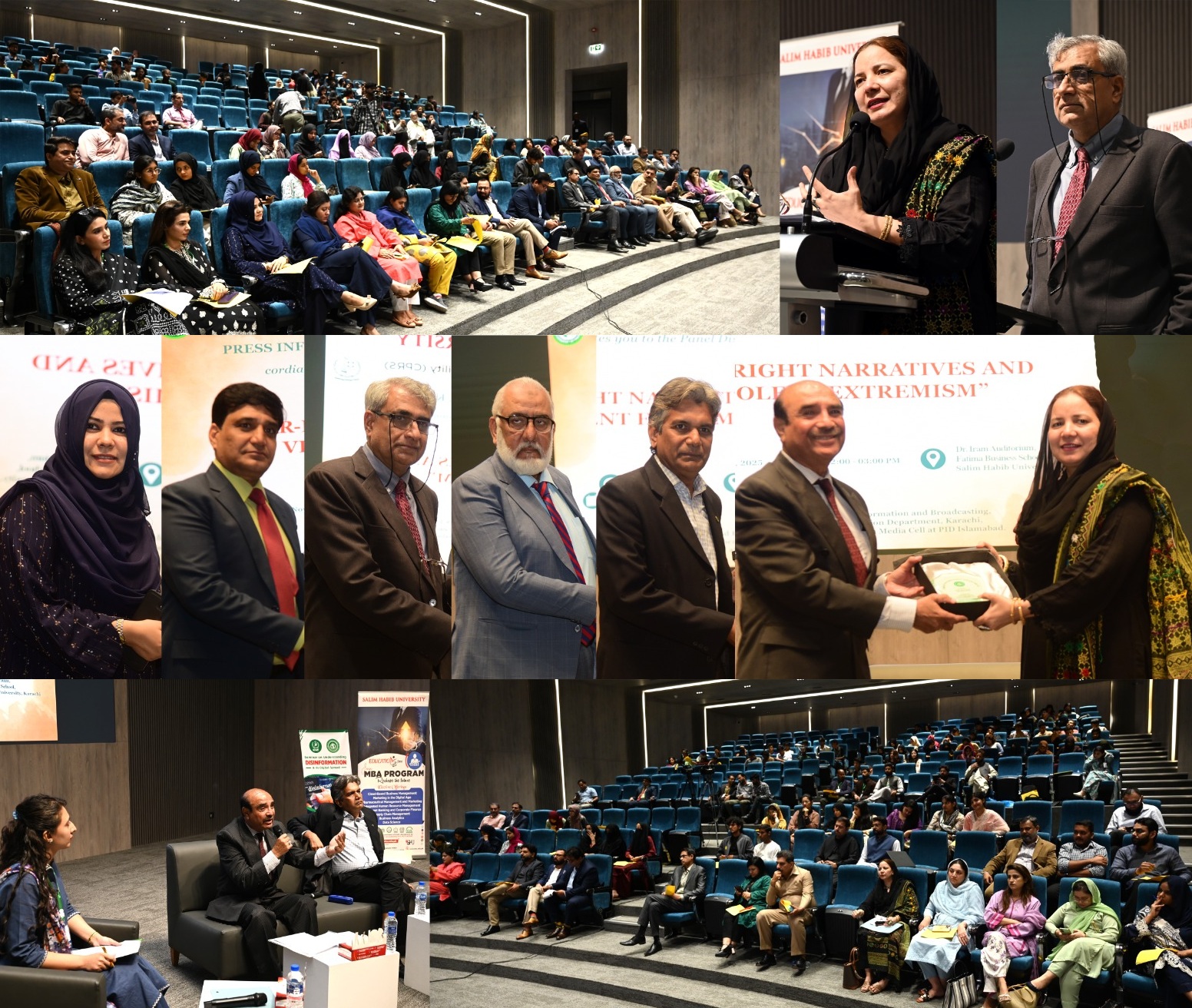"The extremist narrative of the BJP led India is synonymous with the violent narrative of the Israel that fears the increasing number of Muslims globally," GR Baloch
Karachi: Press Information Department Karachi, in collaboration with PID Media Cell to Counter Violent Extremism Islamabad, organized a seminar titled "Far-right narratives and violent extremism" at Salim Habib University Karachi today.
The event brought together students, faculty members, researchers, media professionals, and members of academia, fostering meaningful dialogue on the ideological, political, and social dynamics behind far-right movements and their influence on extremist thought.
The distinguished panel featured Ambassador (Retd.) G.R. Baluch, former diplomat, and Dr. Naeem Ahmed, Chairman, Department of International Relations, University of Karachi.
While giving a historical perspective on far-right narrative, ambassador GR Baloch said that fear was manufactured by the extremist narratives to sell their violent ideologies.
While highlighting Pakistan’s internal and external threats with regard to extremist onslaughts, ambassador GR Baloch said that it was not only the religious extremism but the strategic threat of extremism equally knocked the doors of Pakistan at its eastern and western borders. The extremist narrative of the BJP led India was synonymous with the violent narrative of Israel that feared increasing number of Muslims globally and Pakistan’s nuclear deterrence.
Mr. Baloch further said that Pakistan’s democratic values, free press, and women emancipation were against the Conservative and far-right narrative of TTP. The Conservative and extremist narrative of TTP could be an alarming threat for the youth buldge and marginalised segments of the society in Pakistan, he added.
Emphasizing upon the revitalization of Nation Action Plan, ambassador said that the people in Pakistan, especially the youth must feel empowered and build not only socio-economic resilience to far-right narratives but also the knowledge resilience in the age of information warfare.
Highlighting the historical changes in the evolution of extremist narrative in the Muslim world, Dr. Naeem said that the Iranian revolution, soviet invasion of Afghanistan, and the assassination of Anwar Sadaat triggered the far-right narratives and divided the Muslim world.
He further said that the full ownership of the "War on Terror" by Pakistan could have helped bridging the widening gap between good and bad Taliban and that the extremist narrative could easily be countered.
He further highlighted how gender and morality are often manipulated to sustain these narratives, noting that “references to honor and family values are used to reinforce patriarchal structures and control, feeding intolerance and rigid social hierarchies.”
Addressing Pakistan’s demographic challenge, Dr. Naeem cautioned that alienating the youth from knowledge and economic inclusion leaves them susceptible to extremist recruitment.
The panellists also pointed out the interplay between economic inequality, political exclusion, and extremist exploitation, with Dr. Naeem urging that “governments must address structural inequalities; otherwise, resentment becomes the emotional fuel extremists thrive on.” Ambassador Baluch added that countering extremism requires “building positive, inclusive narratives of citizenship and belonging that appeal to people’s shared aspirations rather than their fears.”




Comments (0)